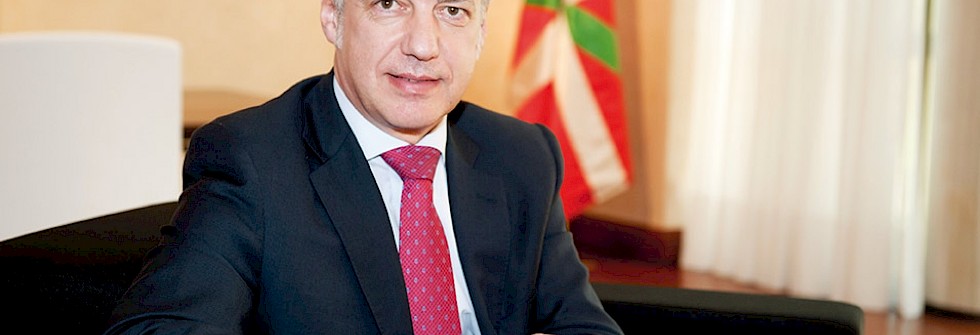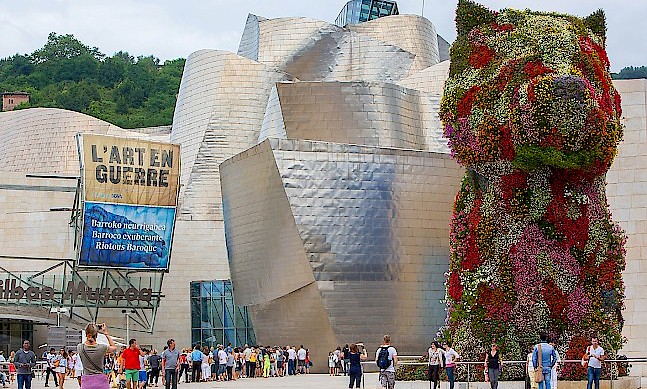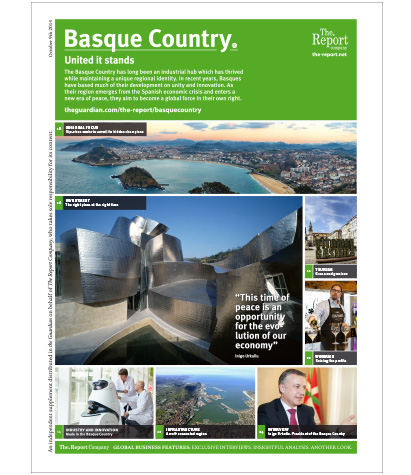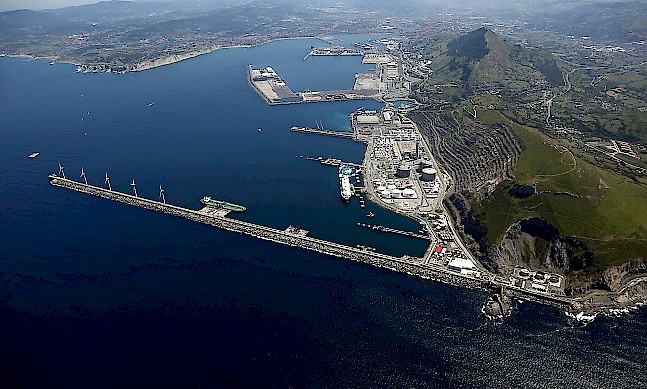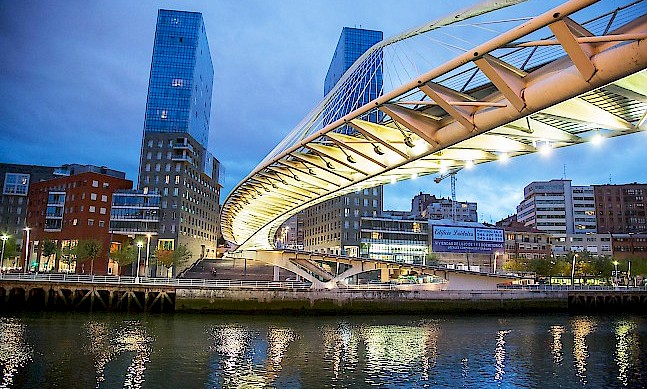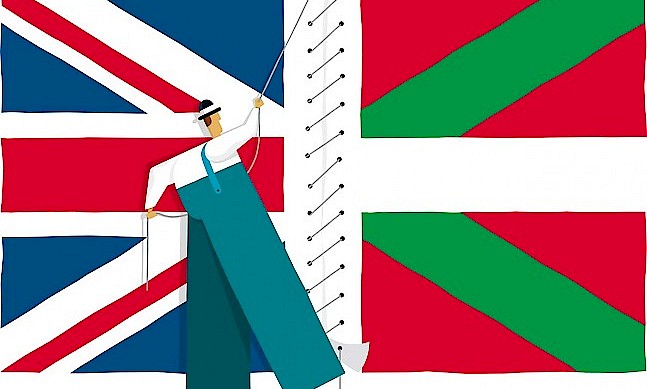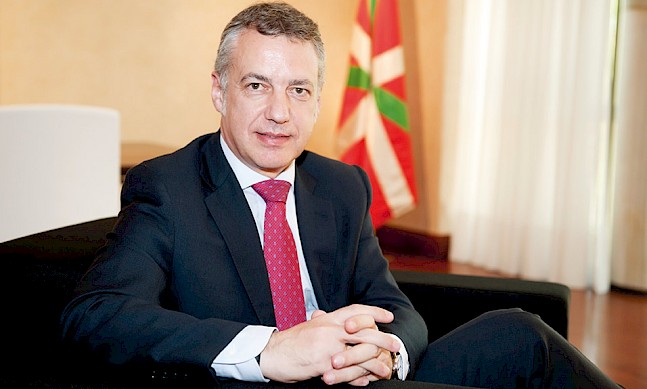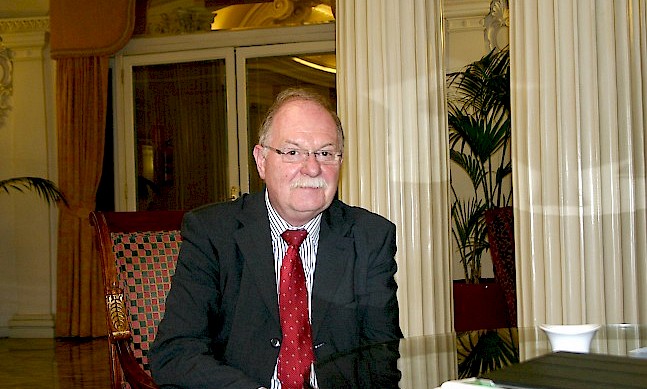Lehendakari of the Basque Country since the end of 2012, Inigo Urkullu is building on the region’s strong industrial base, internationalising its economy and creating a true economic powerhouse within Europe.
The Report Company: What have been your biggest achievements so far as president of the Basque Country?
Inigo Urkullu: I am proud of the commitment that the citizens, and above all the public sector, have made in a time of economic crisis and of scarce resources. We’ve had a much reduced budget compared to previous administrations, and yet we’ve still managed to reach stability because of the rigorous and serious approach of the institutional administration.
The Basque parliament is made up of 75 MPs and the party I belong to has 27 MPs, but we took the responsibility of forming the government because the other parliamentary groups were unable to form a coalition. So despite being a minority government, with all the challenges that brings, even more so in a time of economic crisis, we have been able to provide a certain institutional stability to the Basque autonomous community and this has been reflected in the ability to reach agreements with other political bodies and with the Spanish government. We are well aware of the difficulties that we have before us and we feel we have a certain stability to be able to tackle them.
TRC: What are you doing to change the perception of the Basque Country from its associations with terrorism?
IU: I stood for election in 2012 with three objectives. The first, which is the priority, is economic reactivation and job creation. The second is to consolidate this era of peace which we’ve had since 20th October 2011, and the third is to analyse the degree of self-governance that we have had over the last 34 years and work out how this will look going forward.
It is clear that our political, social and economic history has been shaped by the phenomenon of terrorism. Terrorism in the Basque Country has meant that businesses have faced threats, blackmail, extortion and coercion. This was a reality for many years. Fortunately, there were Basque companies even during the most difficult time of the years of terrorism that in spite of the threats maintained their commitment to stay here. What this meant was that despite the violence, the Basque economy grew. This very committed business class assumed the risk, and because of that, foreign investment was still possible.
Today, there is no comparison between the current situation and the unfortunate situation we lived through in the past. On 20th October 2011 we saw the “definitive cessation of armed activity” and a complete disappearance of all the expressions of violence that had a supposed political motive from a terrorist organisation, which is what ETA is.
This time of peace has to be an opportunity for the evolution of the Basque economy. If we were able to grow during a time of violence, now we are at peace we must be able to grow even more, especially once we get over the economic crisis. In fact, last year, we were the second Spanish autonomous community in terms of levels of foreign investment, after Madrid. Last year, our companies beat the records in terms of exports. On top of our own industrial and economic culture, we now offer to all types of investors a guarantee of peace and calm and absolutely normal business conditions.
“Despite being a minority government, with all the challenges that brings, even more so in a time of economic crisis, we have been able to provide a certain institutional stability to the Basque autonomous community”Post This
TRC: What are your evaluations of the “no” result of the Scottish referendum and what lessons do you think the Basque country can learn from Scotland’s experience?
IU: It is not my place to assess the decision taken by the Scottish people. I deeply respect their decision. I would express my favourable opinion on the fact that the process was legitimate and it was possible for Scotland to freely decide its political future. In the Europe of the 21st century we have moved on from the initial rejection of self-governance to accepting a petition from the negotiation and the agreement. It has been demonstrated that in this way it is possible.
I also think we should value that in a time of disinterest from citizens in politics we have witnessed an act of political legitimisation. There was massive, unprecedented voter participation. For the first time in the history of the European Union a stateless nation has been able to decide if it will participate in the European Union within a state or by itself with the same conditions as the rest of the states.
Finally, I wish to underline that the right to consult and to be consulted and to decide the future is not a political idea. It is a democratic principle that citizens can choose.
TRC: How important is the concept of internationalisation to the Basque Country?
IU: We approved an internationalisation plan with a triple objective: the internationalisation of the Basque Country, the internationalisation of our companies and the internationalisation of our culture.
Our geography and topography is very difficult. Because of all the mountains and the very narrow valleys, there’s very little for the primary sector to work with. As a result, we have had an industrial culture since the end of the 19th century and we have had to be very competitive in order to survive. We have had to develop the ability to generate wealth without having natural resources. We have had to put in a lot of effort. We don’t depend on anyone. The Basques are known for a culture of hard work. We have a culture where our word is our bond, a culture of commitment to doing things well, a culture of trying to do things better than everyone else, because that’s how we survive as a people and as a culture. This is how we have maintained our identity and our language which was at risk of being lost. This gives us a personality and this is what we want.
An important part of our internationalisation plan is the internationalisation of our economy and our companies. Industry accounts for 25 percent of our GDP, whereas in the rest of Spain it’s around 13 percent. Our industrial culture is based on small and medium enterprises, although we have big companies which are internationally renowned, from the financial sector with BBVA to the energy sector with Iberdrola and Gamesa, as well as the logistics and transport sector with CAF and Talgo. We want to support the multi-localisation of small and medium enterprises, because they make up 90 percent of the industrial sector. This is the objective we have with our internationalisation plan.
TRC: What would you identify as the advantages of the Basque Country for potential investors?
IU: The Basque Country is a gateway to Europe and also America. We are geographically in a geostrategic position. We are in the south-east of Europe, in the north of Spain and our ports and airports mean we can not only be a platform for the Americas into Europe, but we can also provide a gateway for Europe to go to America.
We are a community that has always looked to the northern European countries more than those in the south.
Prior to the crisis, our markets were divided into three parts: one part was the domestic consumption here in the Basque Country; another was the Spanish market; and the third has historically been exports to other countries. With the economic crisis we found that the Spanish market has fallen, so we have had to make up for that loss by going outside, and that’s why we’re putting a big emphasis on internationalisation as a means of survival.
TRC: In September, Fitch Ratings revised the outlook on the Basque Country to positive from stable and affirmed its long-term foreign and local currency issuer default ratings at BBB+. To what extent is this a vote of confidence in the economic direction of the Basque Country government, and how would you appraise the success of your economic strategy to date?
IU: The Basque government is making a great effort in fiscal consolidation and in tackling the debt that has been acquired over the last five years. We are obeying guidelines when it comes to deficit reduction. We closed the last financial year with a deficit of less than 1.2 percent of GDP, and this year we will reduce it further to one percent. Our commitment, which we are going to achieve, is to reduce it to zero by 2017.
While the debt of the national government reaches 100 percent of its GDP, ours is at 15.2 percent of our GDP. This is an indication of the health of our economy. We act with rigour in the management of public funds, but austerity alone will not bring us out of the crisis. We have to contribute to economic growth by helping investment. The Basque government has put in place a framework programme for employment and economic recovery of €6,475 million over three years.
Furthermore, since the beginning of our administration our intention has been to preserve social welfare, education, health and social policy because our model of society is also based on social cohesion. Therefore, we stand for an economic model that combines rigour, investment stimulus, job creation and social welfare. We believe that this is the right way to return to growth in a sustainable and cohesive manner.
TRC: Eustat figures for July, released in September, show that industrial activity in the Basque Country jumped 1.6 percent compared to the same month last year. Which industrial sectors would you identify as the pillars of this growth?
IU: Our estimates indicate that this year the Basque economy will grow by one percent and in 2015 it will grow 1.7 percent, if the environment is favourable. This is due in great part to the great effort that our industry is doing in innovating and in going out and finding new markets. We have a diversified and internationalised industrial sector that spans areas such as energy, aeronautics, machine tools and automotive. We want to consolidate the size of industry to 25 percent of our GDP. We are placing priority on innovation and knowledge. By 2020 we want to invest €10 billion in R&D.
“This time of peace has to be an opportunity for the evolution of the Basque economy. If we were able to grow during a time of violence, now we are at peace we must be able to grow even more, especially once we get over the economic crisis”Post This
TRC: How would you like to see the evolution of the relationship with the UK?
IU: With the United Kingdom we have a historic relationship of both economic and sentimental links. Since the beginning of the 20th century, the iron ore that is extracted from the mines of Biscay went to the United Kingdom where it was transformed into steel products in the factories there. We also have very close ties with the UK in football. In fact, our football club Athletic Bilbao is called Athletic, which is an English word, and their anthem is “Aliron”, which comes from “All Iron”, which is what the mine workers would shout as they offloaded the iron from the boats.
We need to look at the UK as it’s a market of great interest to us. In the health and social care sector, the Anglo-Saxon world is very important. In October 2013 we had a delegation from our healthcare and social care system go to Northern Ireland to analyse the system there. In terms of the sectors we are working in, the Basque Country is a reference in the automotive sector: 40 percent of all of the automotive components that are made in Spain come from the Basque Country. The machinery sector is another sector that is still doing well despite the problems in the greater economic landscape. The aeronautics area is another sector of note, as is the renewable energy sector that is being driven by Iberdrola, which is the owner of Scottish Power, so there’s a link there. In everything that is to do with renewable energy, wind power mainly, as well as offshore energy which we are currently working on, there is a very close relationship with the UK. In the area of biosciences and biotechnology, we are also looking to the EU and further afield.
TRC: What is your outlook for the tourism sector?
IU: We can’t compete with the other regions of Spain for the tourists who come for the sun and the beach; we do have blue flag beaches and we do have sunshine, but we don’t have the number of sunny days that the other regions do. This is not the kind of tourism we can aspire to.
The Basque Country offers many alternatives for tourism and in recent years we have been working more emphatically with regard to the opportunities. We see growth in cultural tourism. There’s a great richness of culture in the historical centres of places like Bilbao, and in the villages through the community that are surrounded by green countryside. You can go hiking or mountain climbing; we have mountains, valleys, coasts and sea. Another area of tourism which has grown greatly in recent years is that based on gastronomy, as shown by the number of Michelin stars we have. We may not be able to guarantee sunny days, but we have all this on offer.
TRC: What would you like people to know about the Basque Country?
IU: The Basque Country is one of the oldest places in the European continent and I hope that the citizens of the world understand that the globalisation doesn’t mean we have to lose our individuality. The Basques are one of Western Europe’s oldest people, with their own identity and their own culture. We understand that as a people we have to live alongside many other people and I hope that the citizens of the world will begin to get to know us for the positives, and not for the negatives from the past which have been unfairly associated with us as a people. We live in times of peace, we are committed to the well-being of our citizens, we have self-governance as a tool to facilitate the quality of life of our citizens and this enables us to offer a stable environment for anyone who wishes to invest in the Basque Country, get to know the Basque Country and enrich themselves by learning about a different reality.


